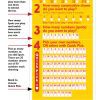If you’re wondering if online poker is harder than playing live, you’re in the right place. Many people have debated this topic, and we’re here to break it down for you. So, is online poker harder than live? Let’s find out!
When it comes to online poker, one thing’s for sure: the virtual tables are buzzing with excitement. With the ability to play anytime, anywhere, it’s no wonder online poker has gained a massive following. But does this convenience make it more challenging than playing in a live setting?
While it may seem that online poker offers more challenges due to the lack of physical cues and the ability to multi-table, there are also unique advantages to playing online. So, if you’re ready to dive into the world of online poker versus live games, keep reading. We’re about to explore the ins and outs of both options. Are you ready? Let’s get started!

Is Online Poker Harder Than Live?
Online poker and live poker both have their own unique challenges and advantages. In this article, we will explore whether online poker is harder than live poker, taking into account various factors such as game dynamics, player skill levels, and the use of technology. We will delve into the pros and cons of each format, offering insights that will help you make an informed decision on which version of poker suits you best.
Game Dynamics: Online vs Live Poker
When comparing the game dynamics of online poker and live poker, there are a few key differences to consider. In online poker, the pace of the game tends to be much faster, with more hands being played in a shorter amount of time. This can make online poker more challenging as it requires players to think quickly and make decisions under pressure. Additionally, online poker often involves multitasking, as players have to manage multiple tables simultaneously, which can further increase the difficulty level.
On the other hand, live poker games have a slower pace, allowing players more time to analyze their opponents’ behavior, make strategic moves, and read physical tells. This slower pace can give players a better opportunity to make well-thought-out decisions and potentially gain an advantage over their opponents. However, it’s important to note that identifying and interpreting physical tells accurately requires experience and skill, which may not be easily mastered by everyone.
Furthermore, online poker also presents unique challenges in terms of adapting to different playing styles and adjusting to the use of digital interfaces. While some players may find it easier to focus and analyze the game without physical distractions, others may struggle with the lack of real-life interaction and the inability to rely on physical cues and body language.
Player Skill Levels: Online vs Live Poker
One aspect that can influence the perceived difficulty of online poker compared to live poker is the skill level of the players. In general, online poker tends to attract a more competitive and skilled player pool due to the accessibility of resources such as training sites, forums, and software tools that can help improve one’s game.
Online poker players often have a higher level of technical proficiency, as they are more likely to utilize software applications that assist with hand analysis, tracking opponent tendencies, and managing bankroll. This increased level of knowledge and technological advantage can make it more challenging for new or inexperienced players to compete effectively.
On the other hand, live poker games attract a more diverse range of players, including recreational and casual players who may not have the same level of dedication to studying and improving their game. This can create more opportunities for skilled players to exploit weaker opponents and potentially yield higher profits. However, it’s important to understand that live poker games can also have their fair share of strong and experienced players, making it necessary to continuously work on one’s skills to achieve consistent success.
Technology and Tools: Online vs Live Poker
The use of technology and tools is another factor that can impact the difficulty level of online poker compared to live poker. Online poker platforms offer features such as hand histories, data analysis, and note-taking capabilities, which can provide valuable insights and help players make more informed decisions. Additionally, players have access to a wealth of information and resources outside of the game, including training videos, forums, and strategy guides.
However, with the advantages of technology come potential drawbacks. The reliance on software tools and data analysis can create a more complex playing environment, where players need to navigate through vast amounts of information and make quick decisions based on their analysis. This can be overwhelming for some players, especially those who prefer a simpler and more intuitive approach to the game.
On the other hand, live poker games rely heavily on the observation of opponents’ behavior, physical tells, and intuition. Without the aid of digital tools, players must rely solely on their own observational skills and psychological insights to gain an edge over their opponents. This can be both challenging and rewarding, as it requires a deep understanding of human psychology and the ability to make accurate judgments based on limited information.
Online Poker Tips for Success
1. Develop a solid understanding of poker fundamentals: Before diving into online poker, make sure you have a strong grasp of the basic rules, hand rankings, and fundamental strategies. Building a solid foundation is essential for long-term success.
2. Start with low-stakes games: Online poker offers a wide variety of stakes, so it’s important to start at a level that matches your skill and bankroll. Beginning at lower stakes allows you to gain valuable experience without risking significant amounts of money.
3. Utilize software tools wisely: While software tools can be helpful, it’s important not to become overly reliant on them. Use them as a supplement to your own skills and decision-making process, rather than a crutch.
4. Practice bankroll management: Managing your bankroll effectively is crucial in online poker. Set aside a dedicated bankroll and only play with money you can afford to lose. Avoid chasing losses and always stick to your pre-defined bankroll management strategy.
5. Continuously learn and improve: Online poker is constantly evolving, so it’s important to stay up-to-date with the latest strategies and trends. Watch training videos, join forums, and discuss hands with other players to enhance your skills and stay competitive.
Conclusion
While the question of whether online poker is harder than live poker does not have a definitive answer, it ultimately comes down to personal preference and individual playing styles. Online poker offers faster-paced gameplay, a more competitive player pool, and the advantages of technology and data analysis. On the other hand, live poker fosters a slower pace, physical interaction, and the ability to read opponents’ physical tells.
Regardless of which format you prefer, success in poker requires a combination of skill, strategy, and adaptability. Continuously honing your poker skills, learning from experience, and staying up-to-date with the latest trends and strategies will ultimately lead to better results, whether you choose to play online or live.
Key Takeaways: Is Online Poker Harder Than Live?
- 1. Online poker requires a strong understanding of technology and computer skills.
- 2. Live poker allows players to read physical tells and body language.
- 3. Online poker offers a wider range of games and tournaments to choose from.
- 4. Live poker provides a more social experience and the opportunity to bluff in person.
- 5. Online poker can be more challenging due to the higher number of skilled players.
Frequently Asked Questions
Curious about the differences between online poker and live poker? We’ve got you covered. Below are answers to some common questions people have about the two formats.
1. How does the difficulty level of online poker compare to live poker?
The difficulty level of online poker can vary depending on your experience, strategy, and the skill level of your opponents. While both online poker and live poker require a solid understanding of the game, online poker can be more challenging in some aspects.
Online poker allows players to multi-table, meaning they can play multiple tables simultaneously, increasing the number of decisions they have to make. This can be more mentally demanding compared to live poker, where players typically only play one table at a time. Additionally, online poker players have access to a vast pool of opponents, including skilled professionals, making it potentially more challenging to consistently win.
2. Are the strategies for online poker different from those used in live poker?
Yes, the strategies for online poker can be different from those used in live poker. Online poker often requires players to be more aggressive and utilize a tighter and more mathematical approach. This is because online players tend to play more hands and are generally more skilled at bluffing and exploiting weaknesses.
On the other hand, live poker allows for more observational skills and reading physical tells. Players can gather information from their opponents’ body language, facial expressions, and betting patterns, which can influence their decision-making process. In live poker, players may also rely more on their intuition and gut feelings.
3. Is it easier to bluff in online poker or live poker?
Bluffing can be effective in both online poker and live poker, but the dynamics are slightly different. In online poker, players can hide behind a username and avatar, making it harder to read their intentions. This can create an environment where bluffing is more prevalent and can be effective.
However, in live poker, players can observe their opponents’ physical reactions and behavior, providing more opportunities to detect bluffs. Additionally, live poker games often feature recreational or less experienced players who may be more prone to calling bluffs, making it relatively easier to execute successful bluffs.
4. Which format offers more opportunities for playing multiple tables?
Online poker offers more opportunities for playing multiple tables compared to live poker. Many online poker platforms allow players to play at multiple tables simultaneously, increasing their volume of hands and potential winnings. This can be beneficial for experienced players who can handle the increased mental and strategic demands.
In contrast, live poker typically limits players to playing at only one table at a time. This may afford players more time to make decisions and observe their opponents, but it can also restrict the number of hands they can play in a given timeframe.
5. Which format allows for more convenient and flexible gameplay?
Online poker offers more convenience and flexibility compared to live poker. With online poker, players have the freedom to play from the comfort of their homes or anywhere with an internet connection. They can choose when to play, whether it’s during the day or late at night.
Live poker, on the other hand, often requires traveling to a physical casino or poker room. Players need to consider factors like availability of games, operating hours, and travel logistics. Live poker games also tend to have a slower pace compared to their online counterparts, which may not suit everyone’s preferences.
Phil Galfond on Live Poker vs Online Poker!
Summary
Online poker and live poker have their own challenges, but online poker can be harder for several reasons. Online players have more hand choices and can play multiple tables simultaneously, requiring quick decision-making. Online anonymity also leads to more aggressive and unpredictable play. However, live poker has its own difficulties too, such as reading opponents’ physical tells. Both require skill, practice, and strategy, but online poker may be tougher overall.
In conclusion, while both online and live poker present unique challenges, online poker is often considered harder due to the greater number of hands, the speed of play, and the unpredictable nature of anonymous opponents. However, players who can adapt to these factors can excel in both formats with dedication and experience. Whether you prefer the convenience of playing online or the social aspect of live play, honing your skills and staying adaptable is the key to success in the world of poker.









